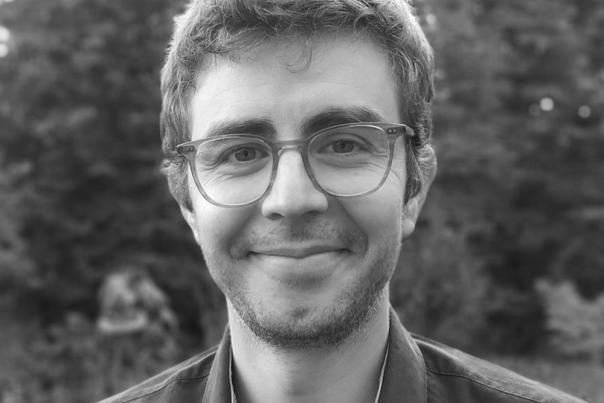Olivier Sartenaer, lecturer at the University of Namur, obtained a master's degree in physics and philosophy and defended his doctoral thesis in philosophy in 2013 at UCLouvain.
Presentation
His thesis, researched at Cambridge University and Université Paris 1 Panthéon-Sorbonne, was awarded the triennial "Prix Dopp" by the Institut Supérieur de Philosophie. After several postdoctoral stays (at Columbia University as a Fulbright/BAEF/Franqui fellow, at UCLouvain (and the University of Virginia) as an FNRS postdoctoral researcher, and at the University of Cologne as a von Humboldt fellow), in 2019 he was awarded the biennial ISDT Wernaers Fellowship in Science Communication and founded the Doubt my Sciences popularization project (funded by Innoviris).
He became a lecturer in philosophy of science at the Department of Science, Philosophy and Society in the Faculty of Science at the University of Namur in 2022.

Search
Olivier Sartenaer's research is in the field of philosophy of science, and focuses on the themes of emergence and reductionism in the natural sciences, from both an epistemological and a metaphysical point of view. In particular, Olivier Sartenaer has recently been involved in developing a new understanding of emergence - termed "transformational emergence" - which makes sense of certain canonical descriptions of emergence in physics (e.g. in specific phase transitions). Since 2019, he has also been interested in the place and role of scientific discourse in society at large, focusing on the demarcation between "authentic science" and pseudoscience. It is also interested in the cross-fertilization between epistemology and science education/science literacy.
Description of the MIS project Rethinking non-reductive physicalism for the 21st century
When the founding fathers of emergentism conceived the concept of emergence in the early 20th century, they aimed to lay the foundations for a new philosophy of nature that was supposed to constitute a middle way between reductive physicalism and substance dualism. From the outset, emergence took on an ontological face. It is placed at the service of a global vision of the natural world that contains things that, while ultimately dependent on a common physical basis, are also truly distinct from it.
By the 1930s, emergentism had fallen into disrepute, due to insurmountable metaphysical and empirical problems. Today, although emergentism has re-emerged as a live option, none of the available accounts of the notion manage to meet the original standards of the viewpoint. Debates are deadlocked, with the desired middle way increasingly appearing as an elusive fantasy.
The main aim of Olivier Sartenaer's MIS project is to break this deadlock, capitalizing on a recent and original theory of emergentism called "transformational emergentism", which constitutes a means of overcoming the problems that plagued early emergentism and still affect its contemporary progeny. More specifically, the project intends to develop an account of transformational emergence that constitutes the appropriate tool for defending an ontological form of non-reductive physicalism.
With this in mind, three specific objectives will be pursued. First, the missing history of transformational emergentism - rendered invisible by a powerful historical bias - will be written. Second, transformational emergentism will be endowed with solid metaphysical foundations in the three dimensions that define it, namely diachrony, flatness and "ontological dynamism". And thirdly, transformational emergentism will be endowed with empirical respectability, by showing that it constitutes the best framework for interpreting natural phenomena in certain areas of physics (namely the cosmology of the early universe) and biology (namely the theory of major evolutionary transitions).
Mentor | Prof. Andreas Hüttemann
Olivier has chosen Prof. Andreas Hüttemann, philosopher of science and physics, Chair of Theoretical Philosophy at the University of Cologne, as his mentor. He is a member of the German National Academy of Sciences Leopoldina. He recently headed two major research units, Causation, Laws, Dispositions and Explanations and Inductive Metaphysics (DFG). He is a leading researcher in metaphysics and the philosophy of science, and an expert on emergence and reduction. His latest book, A Minimal Metaphysics for Scientific Practice, was recently published by Cambridge University Press (2021).
Pr. Andreas Hüttemann was the supervisor of Olivier Sartenaer's von Humboldt Fellowship in Cologne (2017-2019). Together with other local collaborators, they studied transformational emergence in seminars and co-organized an international conference on the subject, which subsequently gave rise to a special issue in the leading analytic philosophy journal Synthese.
Affiliation
L' Espace philosophique de Namur (ESPHIN) is a transdisciplinary space open to the outside world and designed to spark new research, ESPHIN tackles themes developed in its two founding departments: that of Philosophy in the Faculty of Philosophy and Letters and that of Sciences-Philosophies-Society in the Faculty of Science.
